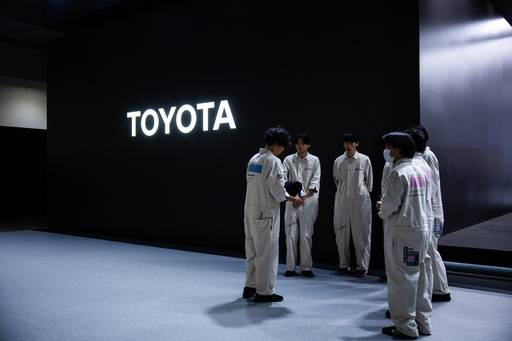Lack of auto mechanics worsens in Japan

The ratio of job openings to job seekers for auto mechanics and technicians in Japan eclipsed 5.00 in fiscal 2024, far greater than the overall 1.14, as the country’s birthrate continues to fall.
The ratio rose by 0.10 points to 5.09 compared to the previous year, recent government data showed. It means there were 509 job openings for every 100 job seekers.
The labor shortage in the industry has raised concerns over its potential adverse impact on automobile safety, with its tough working environment and low pay also believed to be contributing factors.
Businesses close
According to the data from the Ministry of Health, Labor and Welfare, the ratio has been on the rise since hitting 4.50 in fiscal 2020, when it began taking records.
The number of automotive service businesses that closed, were disbanded or went bankrupt climbed to a record high of 455 in fiscal 2024 due to a chronic labor shortage, with some companies forced to delay deliveries or limit the number of units on order, according to Teikoku Databank Ltd.
To combat the shortage, dealership NTP Nagoya Toyopet Corp. has implemented a system that pays up to 100,000 yen ($650) to employees who successfully introduce peers who are recruited. It has employed nine technicians since the practice was set up in fiscal 2022.
Fraudulent inspections
Meanwhile, Nal Net Communications, which undertakes maintenance outsourcing for corporate-leased vehicles, is supporting digitalization efforts at its partner repair shops to help them operate efficiently with less staff.
The data comes after some Toyota dealerships in 2021 were found to have conducted fraudulent vehicle inspections due to understaffing, with the auto giant vowing to reduce the workload.
But the number of people who applied for a license as a mechanic fell to a record low of 35,504 in fiscal 2024, plunging 51.1 percent since its peak in fiscal 2004, according to the Japan Automobile Service Promotion Association.
News of the shortage came amid the latest showing of the Tokyo auto show, where practicality took center stage.
Many Japanese automakers showcased their latest electric vehicles set for release in the coming years as they race to catch up with overseas rivals and make environmentally friendly options more accessible to domestic consumers.
Mobility show
A record-high 500-plus companies and organizations are participating in this year’s Japan Mobility Show, which opened to the media on Oct. 29 for a two-day preview, encouraging visitors to envision the future of transportation.
The event will be open to the public through Nov. 9.
Toyota Motor Corp. reported last week a record high in global sales for the first half of the year, driven by robust demand for hybrids in North America and China, despite fierce competition in China, where the electric SUV bZ3X was introduced.
Honda Motor Co. showcased its Super-One Prototype, a mini electric vehicle (EV) set to launch first in Japan in 2026 before expanding to Britain and other Asian markets.
The vehicle comes with a “Boost Mode,” which enables the driver to accelerate rapidly and smoothly, alongside a built-in sound system that simulates an engine’s sound.
‘Sustainable rocket’
The automaker also displayed a “sustainable rocket” used in a test launch in Hokkaido in June. Measuring 6.3 meters long and weighing 900 kilograms when empty, the reusable rocket uses renewable fuel.
At Nissan Motor Co.’s booth, visitors can see the new Elgrand minivan.
The struggling automaker, which logged a 115.76 billion yen ($761 million) net loss in the April-June quarter, has been undergoing a restructuring overhaul to restore profitability.
Japanese electronics maker Sharp Corp. also unveiled its first EV titled the LDK+, as it pushes further into the industry. The compact minivan allows customers to customize the interior, transforming it into a space suitable for work or entertainment.
The company is expected to begin selling EVs in fiscal 2027, with the concept model based on those by its Taiwanese parent company and electronics giant, Foxconn.

















